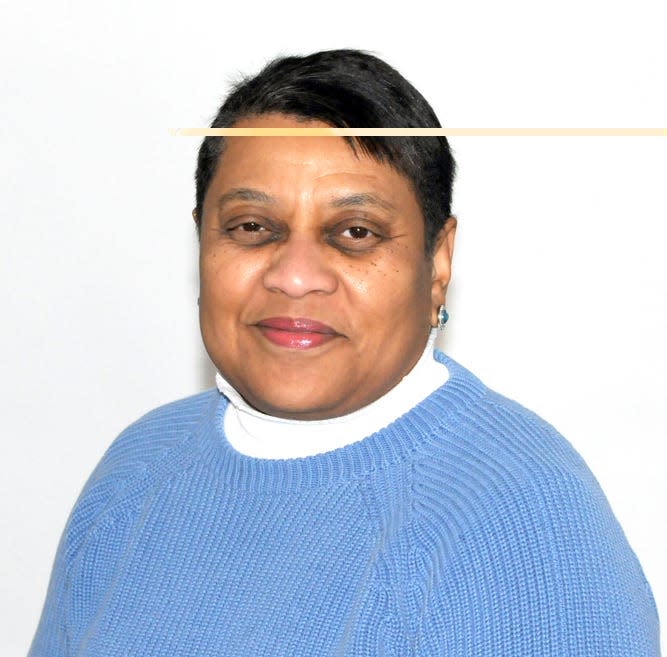Charita Goshay: Eclipse reminds us of our very small place in a very large universe

If you've ever watched a baseball game on TV, there sometimes comes a point in which the pitcher appears to be headed toward a perfect game or a no-hitter but the game analysts pretend it isn't happening for fear of "jinxing" the works.
A lot of people in Northeast Ohio haven't said so out loud, but they're worried that Monday's solar eclipse could be obscured by clouds, and for good reason. Cleveland is the fifth-cloudiest city in the United States, according to the National Oceanic and Atmospheric Administration − an astonishing 299 days out of 365.
Imagine the reaction of tourists who are expected to spend an estimated $1 billion here for what amounts to a five-minute event.
Regional media hasn't gone this gaga since Y2K, which turned into Much Ado About Nothing about 10 seconds after midnight. On New Year's Eve in 1999, our news staff was on call, though most of the evening was spent eating calzones and tossing commemorative Frisbees around the newsroom.
Here's the thing: We have no control over the weather or the eclipse, which will occur whether we can see it or not. This tells us something we tend not to want to acknowledge, namely that for all of our technological prowess, we remain at the mercy of nature and the universe.
Let there be light In the end, light always wins
As late astronomer Carl Sagan eloquently noted, "To my mind, there is perhaps no better demonstration of the folly of human conceits than this distant image of our tiny world. To me, it underscores our responsibility to deal more kindly and compassionately with one another and to preserve and cherish that pale blue dot, the only home we've ever known."
The eclipse reminds us that we have not yet begun to explore or understand the immeasurable wonders of outer space. We've barely explored the ocean, a place within our grasp, let alone whatever floats beyond the Milky Way.
Apart from it being a natural phenomenon that has frightened and enthralled humans for millennia, the eclipse gives us a chance to stop and look up. We spend far too much time with our heads down, staring at our screens and wallowing in the muck − rhetorically speaking − than taking in the wonders that permeate our lives every day.
Year in, year out, without fail, nature puts on a show just for us, from the kelly-green grass and yellow daffodils, which always emerge from beneath the snow, to symphonies of thunder and lightning, to the slow-motion fireworks found in the turning leaves of autumn.
Those nights in Northeast Ohio that aren't cloudy reveal ancient and unchanging constellations, a sight that prompted the Prophet Isaiah to write, "He sits enthroned above the circle of the earth, and its people are like grasshoppers. He stretches out the heavens like a canopy and spreads sitting upon the circle of the earth."
We are a very small part of a story so vast, it's hard to comprehend its depth and breadth. NASA researchers estimate there may be as many as 2 trillion observable galaxies, some of which very likely contain earth-like planets far beyond our reach (luckily for them).
Every now and then, nature likes to remind us that we are just guests here, be it through a storm or a solar eclipse. It hasn't stopped some of us from trying to bend the world to our will and in doing so, we endanger ourselves, future generations and other species who call this fragile place home, too.
Nature is undefeated Charita Goshay: Lest we forget, Mother Nature is still the boss
Our inability to control the universe has resulted in some eye-rolling conspiracy theories about the eclipse. You need only to peruse social media for five minutes to find the whacky rhetoric swirling about, turning the eclipse into a harbinger of doom: "Something, something Michelle Obama/COVID/Sept. 11/Antichrist."
Let's just take a breath and a moment and see the eclipse for what it is: An opportunity to learn more about this astonishing universe, and our place in it.
Charita M. Goshay is a Canton Repository staff writer and member of the editorial board. Reach her at 330-580-8313 or charita.goshay@cantonrep.com. On Twitter: @cgoshayREP.
This article originally appeared on The Repository: Charita Goshay: Eclipse shines a light on our human fragility

